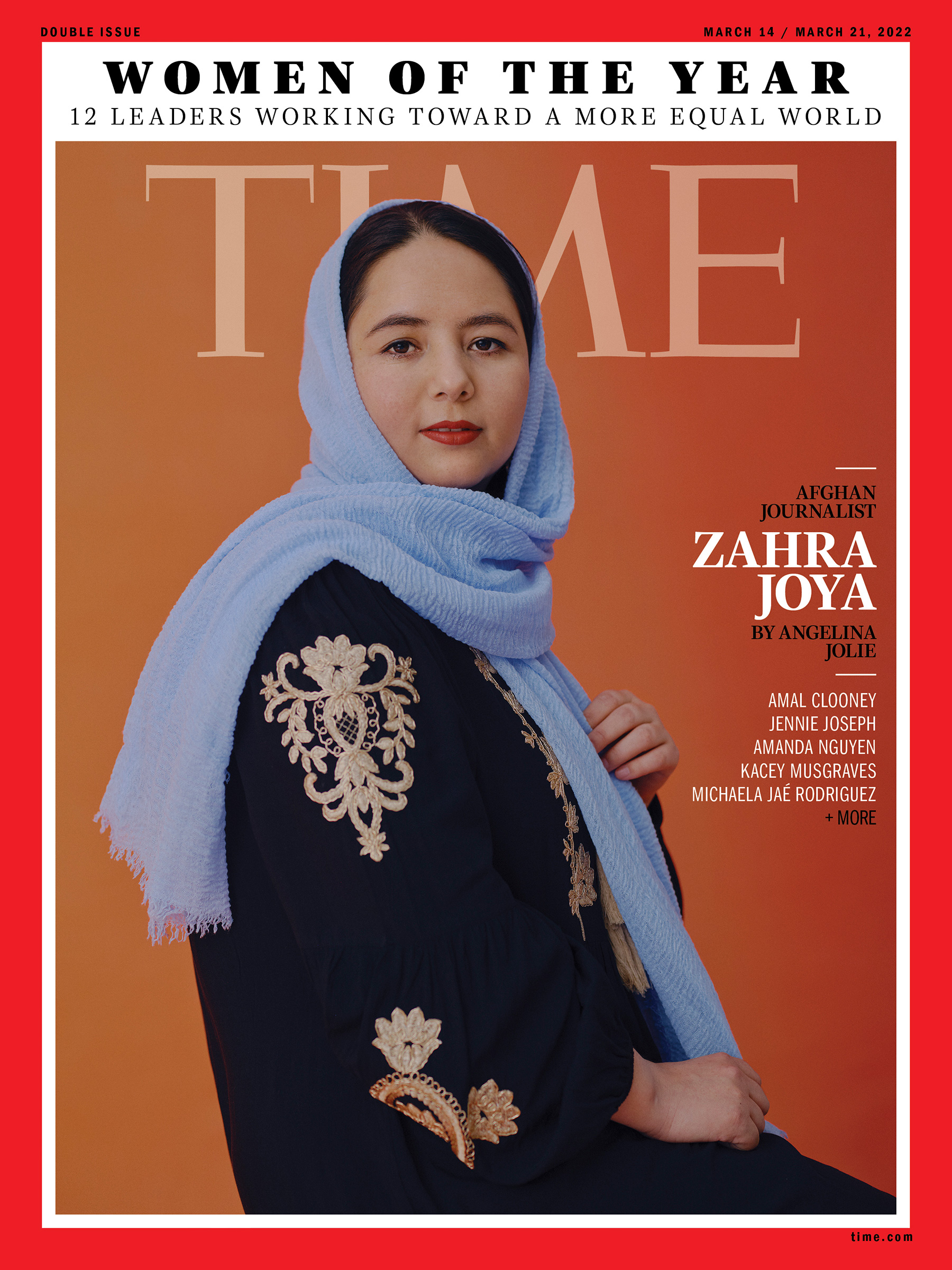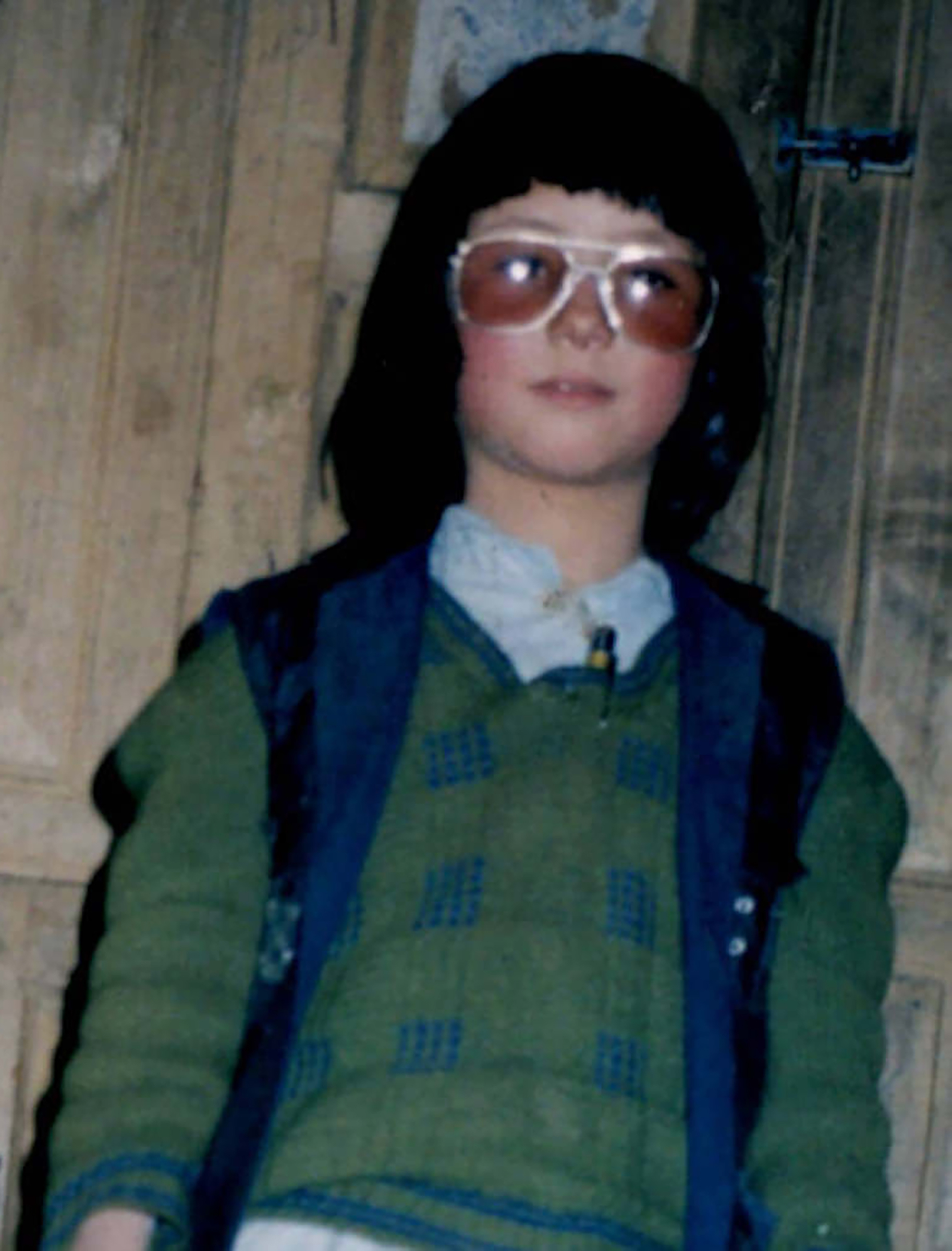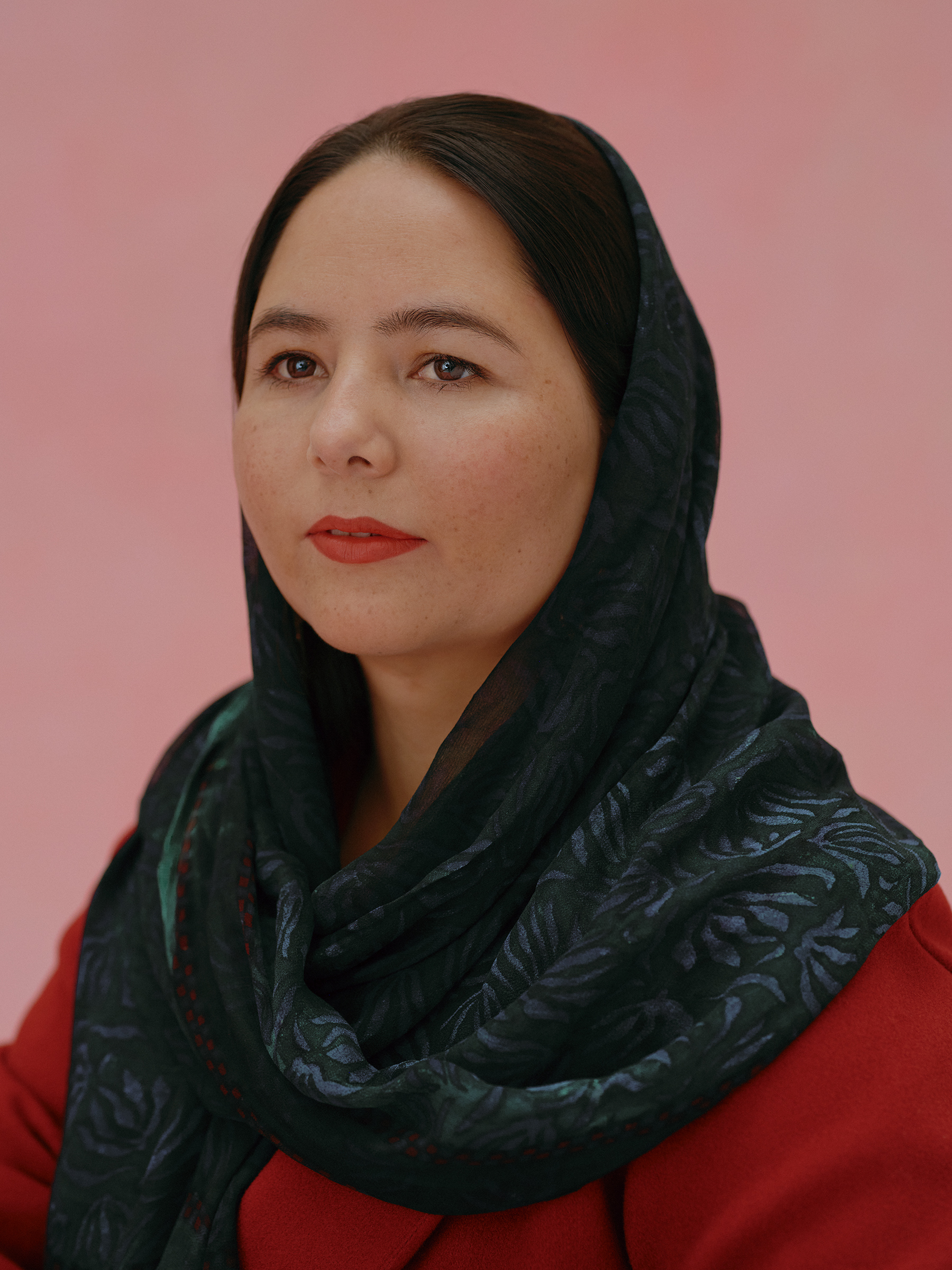Zahra Joya was 5 years old when the Taliban took power in Afghanistan and banned girls’ education. Undeterred, she dressed in boys’ clothing and walked two hours to and from school every day. After the U.S. invasion in 2001, she dropped her disguise, finished her schooling, and enrolled as a law student, before discovering her calling as a journalist.
Afghanistan has long been an extremely dangerous place to be a female journalist. According to Reporters Without Borders, 80% of women journalists have lost their jobs since the collapse of the Afghan government in August. Joya, who founded Rukhshana Media in 2020 with a focus on stories by and about Afghan women, was among those forced to flee the country. She was airlifted to the United Kingdom. She spoke to me from a hotel in central London, where she and hundreds of other Afghan families are waiting for their asylum status to be confirmed.
When we spoke, Joya said she could almost see Tower Bridge from her window—a reminder of just how far she is from home these days. Still, even from thousands of miles away, the 29-year-old journalist continues to manage a team of reporters covering the stories of women in Afghanistan.

Angelina Jolie: It’s an honor to meet you. I really admire your work. Can you tell me where you are speaking from and if you are able to be with your family?
Zahra Joya: I’m in the center of London. We’ve been here for six months. Unfortunately, when the Taliban took over, just me and three of my younger sisters, my teenage brother, and my baby niece managed to get out. We left behind our families, our parents. We miss them every day, and it is very hard for all of us, especially for my brother.
Jolie: We won’t mention where your parents are, for their safety, but are you able to communicate?
Joya: We can communicate, but they are in hiding, unfortunately.
Jolie: Your life is such an illustration of the last two decades for the girls and women of Afghanistan. You know what it is like to live previously under the Taliban, and you know what it is like when there was a change and an opportunity.
Joya: The first time the Taliban regime were in Afghanistan, I was a child. I wasn’t allowed to go to school. But I loved learning. I asked my parents and they said, “You’re a girl, you are not allowed to go to school.” But after that, one of my uncles told me, “You can dress like me, and we can go to my school together.” We walked two hours to school every day. It was a long walk, but it was hope for me. My life journey was not easy. Every step I took was difficult.
Jolie: It’s an amazing story. When you were going to school as a boy, what was your name?
Joya: My name was Mohammed. Some of my relatives still call me “Mohammed Zahra” as a joke. And I say, Yes, it’s a good name for me.

Jolie: I think people have a certain idea of men in Afghanistan and of repression. They don’t know all men in Afghanistan. Your uncle sounds like one of the many Afghan men I’ve met who believe in girls’ education and rights for women, and risk their lives for the women in their family.
Joya: Exactly. We have a lot of men who have fought for equality. They believe in women’s rights. A good example is my family. All of the men supported me, especially my father. He is a lovely man. He supported all his girls.
Jolie: It must be so hard for him to be away from you, although I know he will be happy that you are safe.
Joya: He is. But every time we call him he cries. It is very difficult. We are separated.
Jolie: I cannot imagine. There’s nothing that can settle the soul if you don’t know if the people you love are safe. I know that after school, you went on to university to study law—did your father play a part in that too?
Joya: When I was a child, my father was a prosecutor. Women used to come to our house and ask my father for help. I decided to become a prosecutor or lawyer to defend women’s rights. But when I went to university in Kabul, my classmates and my friends had stories that should be shared with others, but they didn’t have anywhere they could publish them. After a friend’s suggestion, I realized that I should become a journalist. I was a journalist for a decade. In the newsroom I was often the only woman. I used to ask my colleagues why there weren’t other women, and they would say that most of the women journalists didn’t have good capacity or skills. I said that we should be teaching them. So in 2020 I started my own company, named Rukhshana. She was a 19-year-old girl in rural Afghanistan, and in 2015 the Taliban stoned her and she died. I established this news agency as a reminder not to forget her.

Jolie: It’s a beautiful thing to take such horror and pain and honor another woman in this way. I’m sure you have opinions about some good things that were done by the international community, but when I saw the negotiations under the Trump Administration, with no Afghan women, I felt that was a very bad sign that we were starting to step back on what we had said we would not tolerate.
Joya: Yes. Negotiations with the Taliban were just between the Trump Administration with no representation from the Afghan government, or women. It soon became clear that the demands of the Afghan women were not very important to the U.S. and its allies. It was the last consideration. Now, all Afghan women have lost their rights, their freedoms, and their hope.
Jolie: What would be the best way for the international community to support the women now?
Joya: They should talk to the Taliban about women’s rights in Afghanistan. And until they protect women’s rights, the Taliban should not be recognized as a government by the international community.
Jolie: I know some people are trying to suggest they are different now.
Joya: They have not changed. They are an extremist and fundamentalist group. They do not believe in human rights. The people can see that they have not changed. They are torturing journalists and killing policewomen.
Jolie: I know this is not an end, because the Afghan people continue to push forward. But it must be very challenging when there is so much struggle. I know your work must help you. Do you have a vision for the work you want to do?
Joya: I get up every day and start my work as an editor. I get stories from my very brave colleagues in Afghanistan. Even though they are in hiding, they are working. Because it is our aim to work for our future. We are asking women who protest to write their experience and share their experience. It is very painful and sad. Honestly, we don’t do simple journalism these days; we are trying to write for our freedom. We are not allowed to work as journalists anymore. We don’t have access to information. But still, we are working.
Jolie: You’re making a very significant difference. I really do pray that there will be a new chapter for you and all women in Afghanistan, when you will have won your natural-born right to equality.
Jolie, a TIME contributing editor, is an Academy Award–winning actor, and a director
- The 100 Most Influential People of 2024
- The Revolution of Yulia Navalnaya
- 6 Compliments That Land Every Time
- What's the Deal With the Bitcoin Halving?
- If You're Dating Right Now, You're Brave: Column
- The AI That Could Heal a Divided Internet
- Fallout Is a Brilliant Model for the Future of Video Game Adaptations
- Want Weekly Recs on What to Watch, Read, and More? Sign Up for Worth Your Time